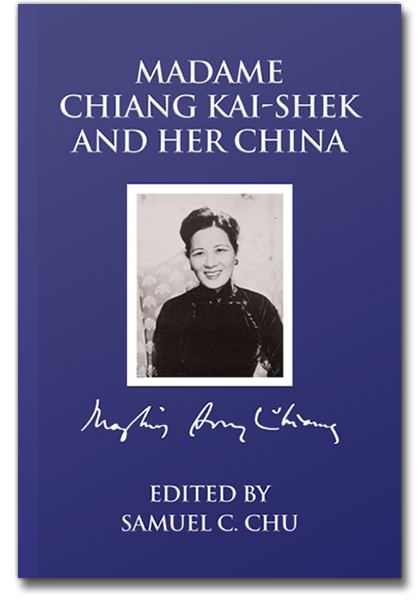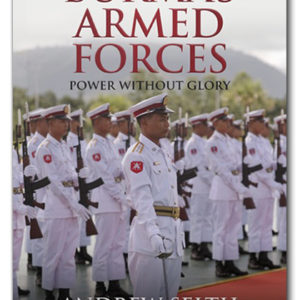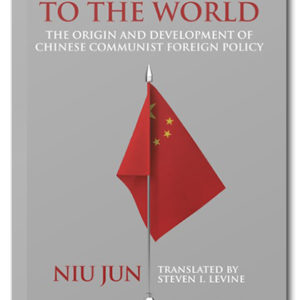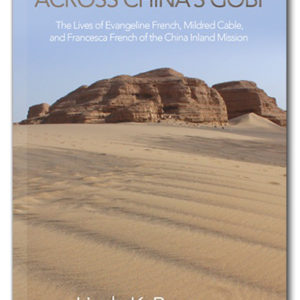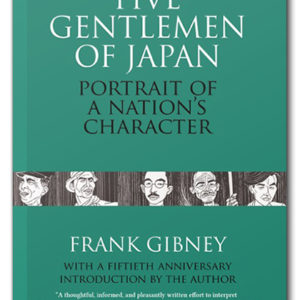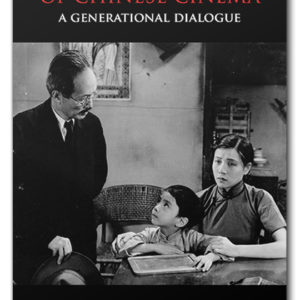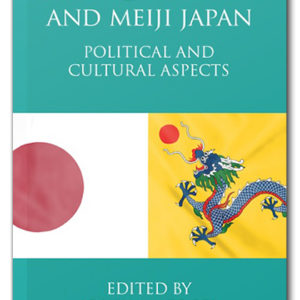Madame Chiang Kai-shek and Her China
Edited by Samuel C. Chu
December 2005 | 186 pages
![]() $19.99 (paperback) | ISBN
978-1-78869-021-8
$19.99 (paperback) | ISBN
978-1-78869-021-8
![]() $34.99 (hardback) | ISBN
978-1-78869-022-5
$34.99 (hardback) | ISBN
978-1-78869-022-5
Also available from:
Amazon
| Barnes & Noble
| Blackwell’s
| Booktopia
|
Indigo
When Soong Meiling, better known to the world as Madame Chiang Kai-shek, died in October 2003, her life of over a century almost exactly paralleled America’s own century of direct involvement with Asia, which began with the acquisition of the Philippines. Alone among Western Powers, the United States championed an Open Door policy toward China. The Madame’s Christian family and her American education perfectly suited the American aspirations for a free and democratic China. And when Japan threatened both countries, the Madame, in perfect English, spoke directly to Americans as the heroic symbol of Chinese resistance. Never mind that she and her husband turned increasingly authoritarian and that the Guomindang was defeated by Chairman Mao Zedong’s communists. And never mind that she never really connected with the vast majority of Chinese living in the countryside. Today, as China is again catching up to the West in leaps and bounds, it is almost as if Soong Meiling, ending her life after a Rip Van Winkle-like retirement in the United States, is ushering in another century, when new Open Door Americans look toward China again. Here for a new generation of general readers and scholars are thoughtful reflections on the significant impact of a major twentieth-century figure who fascinated Americans for decades and had a significant impact on American perceptions of China.
About the Editor
Samuel C. Chu (1929-2013) was a Professor of History at Ohio State University.
Related products
Andrew Selth
| $24.99 | $44.99 |
| Paperback | Hardback |
This book is essential reading for any student of Burma, security in the Asia-Pacific region, China-India relations, or military and strategic priorities in Asia and the world. The key to coming to grips with modern Burma is to understand the country’s armed forces. Although it has dominated all aspects of Burmese life since the 1962 […]
Niu Jun
| $24.99 | $44.99 |
| Paperback | Hardback |
This landmark study by a leading Chinese scholar of international relations significantly advances our understanding of the origins of Chinese Communist foreign policy. Basing himself on a wealth of previously inaccessible Chinese archival sources, memoirs, and official documents, Professor Niu charts the evolution of CCP foreign policy in the period preceding the revolutionary victory in […]
Linda Benson
| $24.99 | $44.99 |
| Paperback | Hardback |
In the 1920s, three adventurous and determined British women missionaries traveled along the traces of China’s old Silk Road to “gossip the Gospel” in the Muslim regions of northwestern China. But as this ground-breaking biography of Mildred Cable and the sisters Eva and Francesca French illustrates, their mission service was only one aspect of these […]
Frank Gibney
| $19.99 | $34.99 |
| Paperback | Hardback |
This classic account (1952) of the makers of “New Japan” tells the life stories of a journalist, an ex-Navy vice-admiral, a steel worker, a farmer, and Emperor Hirohito. Frank Gibney was a wartime intelligence officer who became Time magazine correspondent during the American Occupation of Japan. He went on to be a major interpreter of Japan to […]
Edited By Haili Kong And John A. Lent
| $24.99 | $44.99 |
| Paperback | Hardback |
Arguably the first book to take a generational approach to the Chinese cinema, this book offers a broad picture of the evolution of Chinese cinema in its historical context, as well as thorough and insightful analyses of representative films from different generations.
Edited By Joshua A. Fogel
| $24.99 | $44.99 |
| Paperback | Hardback |
The roots of modern Sino-Japanese relations lie in the intense cultural and political exchanges which blossomed in the mid-1850s extending into the late 1920s. Scholarly interest has grown over the last two decades in the interaction between China and Japan in the late 19th and early 20th centuries. While much of that interest has centered […]

